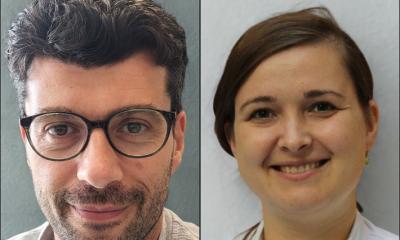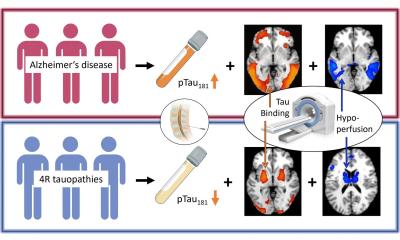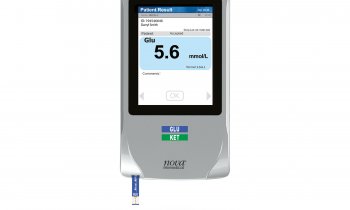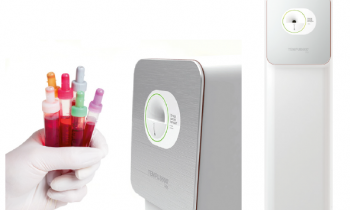News • Alternative to diagnostic brain imaging
Exploring the potential of blood tests for dementia diagnosis
A simple blood test is being rolled out across the UK as part of a new study to detect early signs of dementia decades before it develops and help identify treatments to slow and eventually stop disease progression.
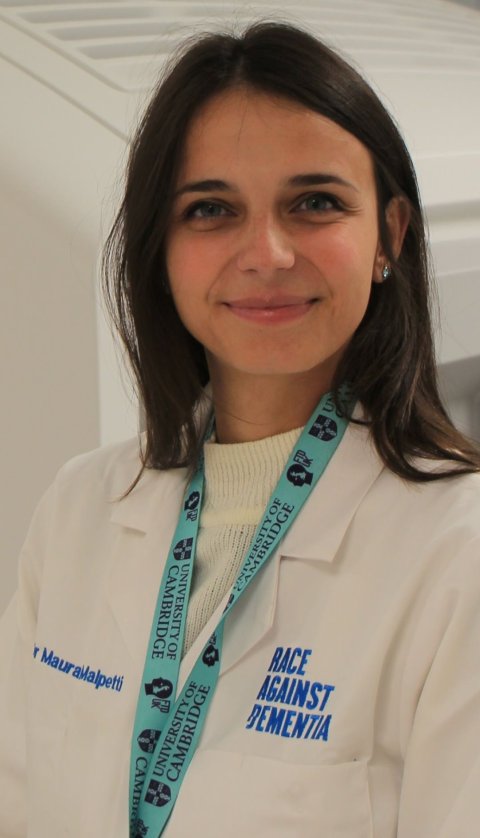
© University of Cambridge
University of Cambridge scientists will use an innovative approach – piloted in Cambridge – to measure brain changes in people with dementia as an alternative to much more costly brain scans, which take longer to carry out and require specialist equipment that is not available everywhere in the country.
Initial research, led by Dr Maura Malpetti, senior research associate in Cambridge’s Department of Clinical Neurosciences, and Race Against Dementia Fellow, found that molecular changes associated with brain inflammation and dementia can also be detected in the blood. These changes can be present decades before physical dementia symptoms and are usually only picked up by brain scans. The new trial will focus on frontotemporal dementia, but aims to help accelerate the development of treatments for other types of dementia. It will be scaled up into a national study at more than 20 research and healthcare centres across the UK to help identify who could benefit most from disease-modifying treatments.
Dr Malpetti, a Bye-Fellow at Sidney Sussex College, said: “It’s a very exciting programme because we’re using blood tests to help unlock treatments to slow down the progression of dementia and eventually stop it. It’s also much easier for the patient than a brain scan. We’re focusing on changes to the brain which can manifest 10-20 years before symptoms, with the hope that in the future we can treat them early enough to stop the disease before symptoms occur.”
A major problem facing trials for new drugs for dementia is that they often involve patients who have received a diagnosis, which means they are already showing symptoms – but by this time, it can be too late for the drugs to make a difference. Identifying individuals decades before they show symptoms will allow researchers to trial drugs and see if they reduce the risk of developing dementia.
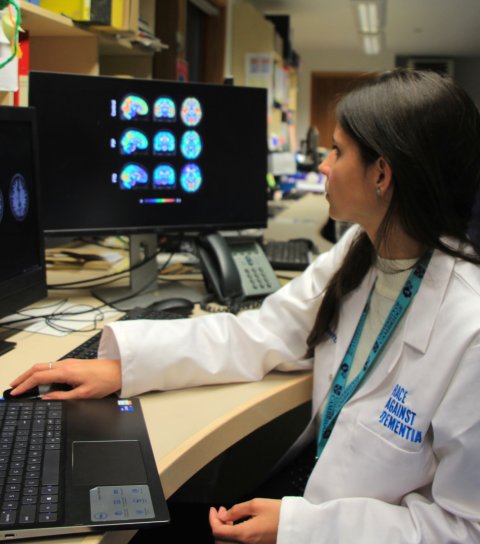
© University of Cambridge
Frontotemporal dementia – which actor Bruce Willis was diagnosed with in 2023, and which his family have worked to raise awareness of – is a rarer type of dementia that causes problems with behaviour, language, and movement. Dementia mostly affects people over 65, but frontotemporal dementia tends to start at a younger age, though it can affect older people too.
Although there are around 20,000 people in the UK living with frontotemporal dementia, Dr Malpetti says that because the disease is less common, people with this condition are often misdiagnosed. So, to recruit patients and raise awareness of the disease, the Open Network for Frontotemporal dementia Inflammation Research (ON-FIRE) study will go into as many different areas and communities of the UK as possible – including remote areas that are often under-represented in clinical studies.
Research has already shown that higher brain inflammation is associated with faster clinical decline in people with frontotemporal dementia, similar to Alzheimer’s disease, and Dr Malpetti says this points to the potential of immunotherapy in treating dementia. “We want to identify who can benefit most from particular treatments – including families of people who may have genetic forms of dementia – when we need to act, and which parts of the immune system we can target with precision medicine.”
Dr Malpetti says that through large-scale studies like ON-FIRE researchers can better characterise the processes that play a role in dementia, which may make it possible to repurpose existing treatments that target these mechanisms– these drugs already have a known safety profile, so taking them through clinical trials can be cheaper and faster than it would be for new drugs.
Dr Malpetti received the Race Against Dementia Fellowship in 2021, in partnership with Alzheimer’s Research UK, for her research and is committed to raising awareness of the condition. The charity was established by three-times Formula One World Championship winner Sir Jackie Stewart OBE following his wife Helen’s diagnosis of frontotemporal dementia. Sir Jackie said: “At Race Against Dementia, our mission is to accelerate the speed of successful dementia research. Dr Malpetti’s groundbreaking work involving a blood test which could detect dementia at a quicker pace, demonstrates our philosophy. Thus by applying the principles of precision, teamwork, and inventiveness from Formula 1 into the world of medical research, we can more efficiently drive progress towards a cure for dementia.”
Source: © University of Cambridge (CC BY 4.0)
18.02.2025




